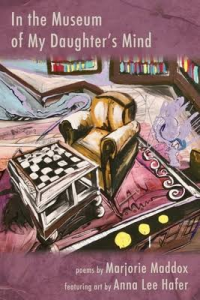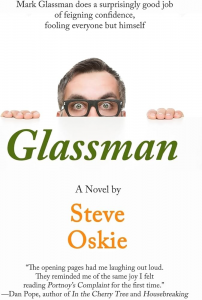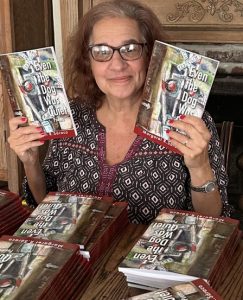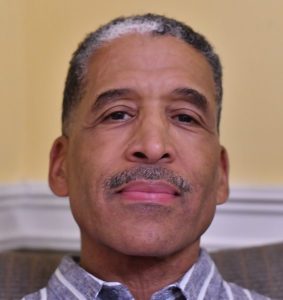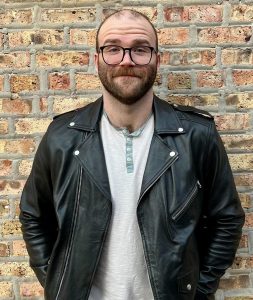
Eli steps out of his truck, slipping the revolver into the rear waistband of his jeans, pulling his red flannel over it. Belle loved this shirt. Said the pattern reminded her of that Italian restaurant he took her to on her seventh birthday. He inhales deeply then glides his hand over his chest, over the fabric, as if to assure himself, this is what he wants to do.
It is.
He grabs the green backpack, slinging it over his shoulder. His Razorbacks hat barely mops up the sweat already dripping from his brow, the eastern Arkansas humidity and heat mixing together like a wet slap to the face. Over the phone yesterday the guide told him to wear long pants, despite the heat. The ‘squitos are a real sumbitch in them woods. Eli tells himself he doesn’t mind the discomfort, his calves already encased in sweat. It won’t last for long.
He steps across the rough gravel parking lot, the stones crunching beneath his boots, crackling like Belle chewing cereal. Only one other vehicle is parked at the other end, a brown early 90s Chevy S-10 pickup. Beat to shit but somehow still appears well-taken care of. The trees overhead offer some respite from the beating July sun as Eli approaches the truck, but not much. He’s never been too lucky. The heat of the rocks beneath his feet burns. Like he’s walking on coals, waiting to be roasted.
“Make it all right?”
An old man slinks out of the S-10. Gray craggy beard, long-sleeved white shirt with SKOL printed on the front. He’s wiry, his brown cargo pants hanging for dear life on what little meat his hips have. Skin’s tan but red at the same time. He wears one of those hats like Gilligan.
“Yup,” Eli says, walking forward, hand already out for a shake. “Greg, I presume?”
“You presume correctly, good sir.” No last names, which was how he was told this would go. Greg’s got a cigarette in his right hand and slips it into his mouth before gripping Eli’s hand. Rough palms, strong squeeze. Working man’s palms. Eli knows Greg is feeling the same in return. Sizing one another up. When Eli lets go, Greg takes a long drag of his cigarette before pinching off the burning ember and setting the remaining heater in one of his pants pockets. “Find the place okay?”
Eli didn’t but nods yes anyway. After he left Brinkley, he followed a winding stretch of unpaved roads with little to no signage, crisscrossing what felt like private land he wasn’t supposed to be on. More than once he felt eyes on him and half expected a rifle round to careen through his windshield, ending everything before it even began. The Big Woods was near the Mississippi River Flyway, half a million acres of mostly pristine land, devoid of humanity. And where they were right now was a federal wildlife refuge within that. And what they were doing was very much illegal. Even getting this man on the phone had been quite the ordeal. A friend of a friend knew a guy who had heard of a dude who knew someone from the internet who met a man at a meeting. Secrecy abounded. He knows Greg here had probably looked him up, too. Made sure he wasn’t a cop. Or a fed. But he’s sure as hell Greg has no clue what Eli’s really here for.
Eli peers behind the man, looking at a trail created by decades of footsteps, leading down to the swampy water. A metal canoe rests where the trail ends. Eli wonders how the man carried it there himself, and before he can ask that question, Greg clears his throat.
“Gotta have the talk,” Greg says.
“The talk?”
Greg nods. “You a cop?”
Oh, that talk. “No sirree.”
“You sure? Not even a little?”
“Damn sure.”
Greg cups a hand around his right ear. “Just one more time for me, if you don’t mind.”
Eli smiles thinly. “I am not, nor have I ever been, an officer of the law.” It’s the truth and he says it as such.
Greg directs his piercing blue eyes at Eli, like he’s digging into his soul. Tension mounts inside Eli, his hands turning to fists, realizing the older man might want to pat him down. Might find the gun. All this planning wasted because of one overlooked thing.
“Alright,” Greg finally says. Eli feels his shoulders relax. “You got the money?”
Eli reaches into his right pocket and pulls out a wad of hundreds. “Half now, half later, like we said.”
Greg’s face grows taut. “Don’t reckon that’s what we said.”
It is what they said. “It’s what we’re going to do.”
Greg eyes Eli’s outstretched hand. Two grand right there. The old man sucks on the inside of his lip, shifts his weight onto another foot. Everything going to shit and they hadn’t even started.
“This right now,” Eli says, pushing the money toward the man, “and if I get what I came for? Double that when we get back.”
Greg’s eyes light up like birthday candles. “Double?”
“Six Gs total.”
“Just six?”
“That’s more than we agreed, ain’t nothing just about it.”
Greg whistles softly to himself. “You good for it?”
Eli pushes the cash into the man’s hand, making him take it. “I wouldn’t offer it if I wasn’t.”
Greg peers at the money in his hand, looking through the bills. Probably making sure they’re not sequential, like this is some sort of Hillbilly sting operation. Or just making sure the count is right. Eventually, Greg folds them up and slips them into a pocket of his cargo pants, pressing the Velcro down hard over it. Greg grins broadly, his eyes lighting up.
“Prepare to have your tits clean blown off, young man,” Greg says before gesturing toward the trail.
#
It wasn’t intentional, what would become his daughter’s lifelong obsession. It’s funny, Eli sometimes thinks, how an accident led to everything. Led to him following this stranger, Greg, down a trail into the vast unknown wilderness.
It was Belle’s third birthday. Eli was running late getting home from the chicken plant. Not his fault. Dale had kept them all 60 minutes over—unpaid, of course, because Dale was a mean S-O-B, a petty tyrant who liked to throw his weight around. Racing down the road, Eli stopped at the good Walmart on the way home. All he had was thirty bucks. That got him a coloring book, a new set of crayons, a pack of stickers, and a plush toy. Hadn’t even been thinking when he picked them up, really. It was only when he got into his truck and saw them laid out on the seat next to him he realized what he’d done.
The coloring book? Full of birds. The plushy? An eagle. The stickers? Yup. Birds.
And after he gave them to Belle—not even wrapped up, didn’t have time for it, which got him a hard stare from Krista, which he knew he’d get some shit for after—his baby girl was never the same. Birds were all she cared for. Birds were her life. All she ever wanted to do was go look at the damn things.
Remembering it now, Eli feels like it was divine intervention. But what he really thinks is no loving God could do what came next.
“You do much canoeing?” Greg asks, breaking Eli from the memory, as the older man gestures for him to get in the front of the watercraft.
“Haven’t really spent much time on the water, to tell you the truth,” Eli says as he unsteadily creeps into the canoe, letting himself sit down on the bench. It’s not the full truth, but it’s close enough. He holds the sides as Greg suddenly pushes the vessel into the water while also hopping in the back with an unexpected quickness for an old man. Then again, Eli doesn’t even know his age. Maybe he just looks rough. Everyone thought Eli was older than he was for a similar reason.
“Not too difficult,” Greg says, picking up a paddle, using it to point at one by Eli’s boots. “Just put that in the water and row. I’ll tell you what to do, where to go. Ain’t no rapids or anything like that to worry about. Barely much of a current.”
Eli does as he was told, feeling strange having the man out of his view, sitting behind him. “Shouldn’t you be in the front?”
“Nope,” the old man says. “I do the steering from back here. I know where we’re going. You don’t know shit. That’s why you hired me.”
In the middle of the canoe sat their supplies next to the green backpack he’d brought. A dozen water bottles and a few gas station sandwiches inside a red cooler half-filled with ice, next to two boxes of Cheez-Its, two pairs of binoculars (Greg told him over the phone to not bring his own), a first aid kit, and a length of rope and green tarp. Everything else made sense but the last items.
“What’s the rope and tarp for?” Eli asks.
“Just in case,” Greg says, turning the boat eastward.
A bird squawks overhead, and Eli looks, trying to follow it with his eyes. But the creature was hidden somewhere amid the giant trees that stick out of the water like fingers of God, aiming toward the heavens. It’s cooler closer to the water, but Eli already feels his armpits soaked with sweat. No turning back now. He was still doing this. A promise to keep.
“In case what?” Eli asks.
“Anything.”
After that, Greg tells him they would be paddling for at least the next two hours and to enjoy the view.
#
This wasn’t his first trip into these woods. Not even the second. Maybe his 12th. Perhaps lucky No. 13. Wouldn’t that just make sense. Never before had he hired a personal guide, instead going with tour groups in the areas you’re allowed to visit. Always coming home empty-handed. Looking for a sign this was what he was meant to do, and being told by God that no, not this time. Maybe not ever.
This is his last chance, he thinks as he paddles around a tree, there will be no more after this. No more money. No more willpower. Eli feels his gun tucked in at the small of his back, the metal somehow still cold against his skin as drops of sweat roll down his shoulder blades.
“Know much about it?”
Greg’s voice crackles from behind Eli, startling him. They’d been paddling about half an hour in silence.
“A bit. I’ve read the scientific papers. Where they found it.”
“That’s all bullshit.”
Eli turns and looks at Greg. A cigarette hangs on the man’s lip, unlit. Eli asks, “What do you mean?”
Greg waves his wrinkled hand in the air like he’s swatting away flies. “All bullshit. They ain’t seen dick. Or they’re just confused. Looking for the wrong reason.”
“What’s the right reason?”
Greg’s smile slowly crests his face. “Now that’s the question there, isn’t it. If you don’t come looking with pure intentions, it don’t show.”
A pain stirs inside Eli’s chest, a fire burning up into his throat. If his reason wasn’t a right reason, then no other could exist. He turns back toward the front, paddling silently, deciding whether or not he wants to say anything to this old man. To let it all out. To tell someone, anyone. But he’s told nobody. Not even the priest after the service.
There’s no way the old man could know, right? Unless he could read Eli’s mind.
“Unlike them, I’ve seen it a whole lot of times,” Greg says. “That’s why I know where to go.”
“You’re going for the right reason?” Eli asks.
“No, not at all,” Greg answers. “I’m going for money. Plain as day. I think it knows that. But you?”
The words hang in the air. Eli asks, “Me?”
“You’re here for something honorable. Something honest,” Greg says. “I can tell.”
Eli goes to speak but his voice catches in his throat. His nose burns, his eyes ache, but he pushes it down. No tears. Not now. He takes a few breaths, steadies himself, and whispers, “I hope so.”
#
Krista noticed Belle’s cough first. She wanted to take their seven-year-old daughter to the doctor right away. But with the chicken plant’s basically non-existent insurance, and with his hours already getting cut as is with talks of the company closing down the whole operation, money was tight. Shit, when the hell wasn’t it? The best they could afford was the free clinic in Pine Bluff. After waiting for five hours next to a still-drunk man with a broken arm while people in nearby seats coughed much louder and harder than his daughter, the overworked doc gave Belle some antibiotics—from a sample pack, Eli noted—and sent them on their way. Just a cold, nothing to worry about.
Eli didn’t even think much about it. Kids got sick. Then they bounce back. When Belle first started kindergarten, she was sick every other week. Her nose ran so much Eli used to joke someday it’d be able to run a marathon. But a few weeks after that doctor’s visit, Belle wasn’t any better. And after Krista begged him to do something, he finally ponied up and took his baby girl to a doctor. Sorry, but your insurance won’t cover this visit, the woman at the front desk said after they had already waited two hours to be seen. He gave the woman one of his credit cards he knew wasn’t maxed out and started making plans in his head on how to pay for it all.
The doctor seemed barely out of medical school. Skinny and blonde, Eli wasn’t sure the kid had even started shaving yet. After about five minutes, the young buck said there was nothing to be afraid of. Just a bad cold. A viral infection. Kids get sick. Then they bounce back. His own words coming back to him. What about her being tired all the time, doc? She doesn’t eat much. The doc repeated himself: Just a viral infection. They bounce back. Nothing to worry about. The sumbitch even patted Eli’s arm while he said this. Like he was talking to a child himself. Eli wanted to pop the guy in the jaw, teach him some manners. But then the doc gave Belle a grape lollipop and told her she’d be feeling better in no time. Eli got the bill at the front desk, his eyes wide at how such a short visit that didn’t do shit could cost so goddamn much.
Wasn’t until later he realized they’d charged him $10 for the lollipop.
Belle didn’t get better. But she didn’t get worse, neither. Krista thought maybe it was asthma. It ran on the side of her family. Said even she would get to hacking and coughing after her shifts at the Big Banjo Pizza Parlor. Doctor had ruled out asthma, he told her. Well, it’s just a cold, right? Eventually, they just forgot. Belle coughed. That’s just what she did sometimes. Nobody paid it too much mind. It didn’t seem to bother her none. And the thing that tugged on Eli’s heart the most, is he knew he should do more, watching his baby girl cough like that from time to time. But he didn’t do anything.
Until one day, about half a year later, while they were out in the woods, Belle in a light long sleeve shirt, peering through the binoculars she’d gotten after selling umpteen Girl Scout cookies, hoping to see a certain type of wren—he’d never been able to identify a damn thing—his baby girl pulled her head back and sneezed. He reminded her to cover her nose, and then she sneezed even harder into her elbow. And when she looked at it, the crook of her shirt was covered in deep crimson. Her upper lip and nose speckled with blood. Her eyes full of fear.
#
“So you’ve seen one,” Eli says to Greg in between soft strokes. It’d been about two hours since they last said much, other than Greg occasionally giving directions. The rowing had become meditative at times, Eli’s mind going blank to anything other than the sights and smells around him. The occasional scream of a bird. The stench of rotten eggs periodically floating into his nostrils. The cool wind, offering respite from the sun that sporadically beat down in-between the canopy.
He looks back at the older man, whose eyes are focused on the treetops, always scanning.
“A-yup,” Greg says, nodding slowly a few times, like he’s having to convince even himself. “Wouldn’t be taking you out here if I hadn’t.”
“How many times?”
“How many times what?”
“Have you seen it?”
His eyes dart to Eli. “Every time, brother. Every goddamn time.”
Eli scoffs at that. “Impossible.”
“That’s the thing,” Greg says, thinking through his next words, scratching at the gray stubble near his Adam’s apple. “You know, let’s move by that tree over there, next to that cropping of land. Rest us a spell. I’m getting a bit hungry. Bout lunch time anyway.”
“Are we close?”
“We’re not far.”
In the distance, Eli thinks he hears the sound of an outboard motor, a chugging drone of machinery, but that’s muffled by the sound of them maneuvering over to a giant cypress next to the shore. And then the sound’s gone, if it ever was there. Eli turns around in his seat, facing the old man. Greg pats the tree’s bark, gives it a grin like he’s seeing an old friend.
“These have been growing since before Columbus landed in the New World,” he says, taking a sandwich from his mini cooler, his eyes staring at the green backpack before offering the food to Eli. “You know that?”
Eli takes the sandwich from him and unwraps the plastic, pocketing the wrapper, ignoring the green backpack as much as he can. He shakes his head, unsure how to answer his navigator. He takes a bite and swallows quickly without really tasting anything. Greg grabs a bottle of water and unsnaps the lid before drinking half of it in one go. He wipes his beard and screws the lid back on.
“I was raised Baptist,” Greg says, “But I never cotton’d to the idea of a big man in the sky, knowing everything we were going to do, in control of it all. Never made much sense to me. You?”
“Catholic.”
Greg winces. “Damn, that’s the pits right there. All that kneeling and standing. All the life sucked out of the service. Them priests? Heebie jeebies, man. Sorry, rude to speak ill of another man’s faith.”
Eli shrugs. “Ain’t religious anymore.”
“No?”
Eli chews another bite. “If I ever meet God, I’m going to strangle the mother fucker.”
Greg’s eyes go huge. Eli thinks he’s said something wrong, maybe hurt the man’s feelings, but then the old codger laughs. It’s higher pitched than Eli expects and goes on long enough that even Eli manages to grin. Just a little.
“You got fight in you,” Greg says. “Commendable.”
“I’m not so sure of that.”
Greg grabs a sandwich for himself and delicately peels off the wrapping before taking a bite. He points it at Eli while he talks. “What I was getting at is I wasn’t raised to believe in miracles. But what we got here? What I’m taking you to? That’s what it is, man. It’s not supposed to be here.”
“You said you always see one.”
Greg pauses before taking another bite, nodding slowly. As he chews, he looks around, aiming his head toward the shore. “Back through there’s where I saw my first one. My grandaddy took me when I was knee high to a duck.”
Eli’s breath catches, his heart beating stronger. Beyond the shore, the trees are bunched together, so close that it’s impossible to see more than ten yards. “Is that where we’re going?”
“I don’t think so. Not today.”
Eli makes a face. “How can you be sure?”
“Only sure of three things in this life, Eli.” He holds out his hand, index finger out. “One, we’re all going to die. Two, the Dallas Cowboys ain’t ever going to win another Super Bowl. And three—”
The crack echoes around them as something whips past Eli’s head and slams into the tree next to Greg. The wood splinters, a small hole barely visible, inches to the right of Greg’s face.
It takes Eli too long to realize what it was. And that’s when the second gunshot hits Greg.
#
They called it pediatric non-small cell lung cancer. It was so rare that when Belle was finally diagnosed, the oncologist at the Arkansas Children’s Hospital said she was one of only a handful of cases in the entire state. Eli gripped the chair when the doc said this because the man seemed almost excited, like he was getting to play in a whole new sandbox. Krista immediately broke down, head almost in her lap, sobbing quietly. Belle was in a nearby playroom with some other kids. He wondered if all their parents were getting similar awful news.
“What are our options?” he asked, trying to remain as stoic as possible. Be the man. Be the hero. Be what was expected of him.
The doctor’s face turned grim. “Unfortunately, it’s metastasized.”
“What’s that mean?” Krista managed to ask between tears.
“It’s spread,” Eli said, fighting the urge to cry himself. “Right?”
The doctor nodded. He had gray hair, a brown goatee. Eli thought the man dyed it. It looked off. All he could focus on now was the man’s chin.
“I won’t sugar coat this,” the doctor said. “The outlook isn’t great. If only we had caught it earlier, even a few months—”
“You piece of shit.” Krista’s words cut into Eli like a dagger. He couldn’t turn to face her but felt her eyes drilling into him. Eli kept staring at the doctor’s goatee. “I told you something was wrong. But you didn’t take it seriously.”
His wife’s voice cracked into stronger sobs then, her head back in her palms as she heaved up and down. He reached to console her, but she shrugged away his hand, as if his fingers were fire. Eli leaned forward, running fingers through his hair. “What can we do?”
“There are some options,” the doctor said. “Surgery. Chemotherapy. Radiation. But I need to warn you, sometimes the cure’s worse than the disease.”
Eli imagined his daughter in the other room, unaware of everything going wrong inside her body. His seven-year-old daughter who loved birds. Who had just seen one called a gray catbird. Eli told her it didn’t look anything like a cat. Belle smacked him on the arm, told him to stop being silly. His baby girl looking up at him with all the love in the world. That he would protect her. That everything would be okay.
He finally broke, his own tears coming now, as he told the doctor, “You’re going to do whatever you can to save my daughter.”
“Sir, I need you to prepare for—”
Eli stood then, pointing at the man. “You’re going to do everything.”
#
Greg falls backward, landing partially on the shore, rocking the canoe just enough that Eli loses his balance and also falls backward. A third bullet whizzes past his ear, so close he imagines it bristling his hair. Eli lands on his back, hard, the wind knocked out of him. He lays flat, the sides of the canoe tall enough to provide him just enough cover, his mind racing. From here he can see toward the shore, but not behind him where the gunfire came from.
Sounds of movement from the shore. Greg’s shirt is covered in blood as the old man scrambles to the other side of the giant cypress. They briefly make eye contact, exchanging fear.
“We told you Greg,” a man’s voice calls out, elongating tooooold you. A taunting tone, somewhat sing-song. Arkansas accent. He’s not close, but not far either. “We done told you. You wanna be in our swamp? You gotta pay. And you ain’t paid diddly shit.”
“You tell him Darryl,” a second, higher-pitched voice says. “You tell him good.”
“We gave you enough warnings,” says what Eli assumes is Darryl. “And you plum ignored that shit. Well, my daddy ain’t in charge no more. Whatever agreement you had? Done. Now, how about—”
“Fuck you Darryl.” Greg yells from behind the tree. His voice weaker than before, scratchy. From behind the tree, his hand sticks out, covered in blood, middle finger raised. “I ain’t payin’ you or your inbred brother a goddamn dime.”
Another gunshot just as Greg’s hand moves into cover. It misses.
“I ain’t inbred,” the second voice says. “That’s not nice, Greg!”
“Quiet, Alden,” Darryl says. “We’re trying to conduct a business transaction here.”
“Funny way you do business,” Greg shouts. “Shooting a man.”
The world is silent for a few seconds. Eli’s heart thuds loud in his ears, almost drowning out all other noise. He’s not sure how thick the canoe’s sides are. If they’d even stop a bullet. Fuck. The gun. He slowly and awkwardly reaches into the small of his back to retrieve the revolver.
It’s gone.
“Now, we got a proposition to make for the man in the boat,” Darryl says. “You listening?”
Eli’s hand feels around behind him. Nothing. After he pulls his hand back, he yells, “You tried to fucking shoot me.”
“Yeah, well, we didn’t, did we?” A pause. “Let’s keep this real simple, boatman. You give us whatever money you got. Keys. Wallet. That sort of deal. And we let you skedaddle on out of here.”
Eli thinks through it. “I don’t know where I even am.”
“Not our problem, honcho,” says Darryl. “That’s the deal.”
“How do I know you won’t just shoot me as soon as I look up?”
“You don’t,” Darryl says. “But we ain’t gunna. Unlike Greg, we abide by our deals.”
“What’s that supposed to mean?” Eli asks.
The two men laugh. Eli chances a quick glance over the canoe’s edge. A wooden boat, painted green, with an outboard motor. One tall skinny pale man with a thick beard holding a rifle pointed toward him. Another man, shorter, fatter, tanner, with a shaved head wearing a brightly colored Memphis Grizzlies jersey, a large revolver in his hand.
Eli ducks his head down, his heart jumping in his throat.
“Could’ve shot you right then and there, hoss,” Darryl says. “Had you dead to rights. But I didn’t. Ain’t gunna.”
“Answer his question, Darryl,” Alden says, prodding. “About Greg. He deserves to know.”
“He does indeed,” Darryl says. “That man you hired? He ain’t seen shit.”
“That’s a goddamn lie!” Greg shouts before starting a coughing fit.
“Oh he’ll take your money,” Darryl says. “Got himself a nice little trick. Tells you a big tale. Probably said he first saw one over in them trees with his grandaddy, right?” Darryl pauses. “Yeah, I thought so. He takes you out here, makes you believe in him so much, gets you good and riled up, then finally, he points, gets all excited, and you see something and your mind does the rest.”
“But you actually ain’t seen shit,” Alden says.
“You lie!” Greg yells. “That ain’t true!” But there was a hitch in his voice. Eli didn’t think the man fully believed himself.
“It’s a good scam, I’ll give you that, Greg,” Darryl says. “But you owe us our cut. Maybe next time you run this scam—if we let you out of here—you’ll know we mean business.”
Something glints near Eli’s foot. Something metal. He shifts in the boat, trying to get a better look. But the red cooler is blocking his view. So is the green backpack he brought. His chest tugs at seeing it.
“So, boatman, what’ll it be?” Darryl asks. “Now that you know that conman’s gotten you good. Gotten you all mixed up in this mess. You give us what you got, you head west, you’ll eventually find civilization. And you forget all about ol’ Greg here. And what you’re looking for.”
Eli’s breathing goes heavy, his body lethargic. Like he just had a giant meal.
He imagines Greg behind that tree, cowering and helpless. An image flutters in his mind of Belle, looking so scared.
And Eli knows that God takes us all eventually and so while we’re here, we should do the right thing. We should keep God at bay as long as fucking possible.
Eli knows what he has to do. His body tenses. His plan unfolding.
He never intended to leave these woods.
He doesn’t care what these men say.
He’s got a promise to keep.
#
They’d lost the house by the time Belle had finished the last round of radiation. He’d mortgaged everything he could, paying for her treatment. The plant fired him for missing too many shifts, after sitting with his baby girl during the chemo treatments that didn’t slow anything down. No, they just made her sicker, made her feel like garbage, but he kept telling her she’d get better. The next treatment would work. Now she wore a beanie with a blue bird on it, keeping her bald head warm in the frigid temperature of the children’s hospital, a giant book of illustrated birds on her chest as she flipped through the pages, her eyesight getting worse by the day. Her favorite bird changed nearly every week. Currently it was the barn owl. He wondered how many more favorites she’d have.
Krista hadn’t moved with him when he got an apartment. She’d stopped showing up at the hospital when he was there. Blaming him for Belle’s cancer, her slow death. And she was right, he thought. It was his fault. Eventually she’d been banned from the hospital when she showed up drunk or high or both and tried to fight an orderly. Her phone had been turned off. Last he heard, she’d moved in with a cousin down in El Dorado.
But Eli was here every day. The staff pitied him and her, letting him spend as much time as he could, damn the visiting hours. He’d gotten the hospital to get them a room with a view of a nearby copse of trees. When Belle felt good enough, he’d hold the binoculars to her face as she scanned the branches, calling out the birds she saw. Eli didn’t know if she ever actually saw any, but he kept dutiful tabs, filling out her birding journal. A ruby-throated hummingbird! A chimney swift! Daddy, I think I saw a blue jay!
She flipped through the giant illustrated book now, one he’d gotten from the library, and her eyes turned into saucers on one page. A beautifully drawn bird, with red plumage behind its head, a white streak down its black wing feathers, a yellow beak. A woodpecker. Not just any: The caption called it an ivory-billed woodpecker.
“The Lord God Bird,” she said, pointing. “That’s what these are called.”
Eli repeated the name in his mind: The Lord God Bird. Huh.
“Fancy name for a bird. Why do they call it that?”
She shrugged her tiny shoulders up. “Daddy, did you know they thought these were extinct?”
“I did not, baby girl.”
“But they saw one in Arkansas. Lots of people have gone looking for it since.” She stared up at him, excitement in her eyes. “When I get out of here, can you take me to go find one?”
He looked out the window, unable to look at her, as he nodded his head. He did what parents have always done to their children. He lied to protect her.
“I promise,” he told her finally, running his hand along her cool face. “If it’s the last thing I do, I’ll take you to see this bird.”
She was dead the next morning. He had her cremated, unable to bear looking into a coffin and seeing her again. The funeral was sparsely attended, the priest going through the motions, unhappy he didn’t have a coffin but doing his job anyway. Afterward, Eli put her ashes in a jar, setting it in her green backpack she always wore whenever they went into the woods. Her birding bag, she called it.
And he promised her, in the house of the Lord, that he’d take her to see her bird. And then he’d join her.
#
Eli leans up in the canoe, hands raised as best he can. He expects a bullet to take him right then and there. But when it doesn’t, he turns toward the two men in the boat, their guns pointed at him.
“We got a deal,” Eli says, raising a single finger. “On one condition.”
Darryl snorts. “You ain’t exactly in what one would call a bargaining position of strength, boatman.”
Eli shakes his head. “I got four grand in my pocket. My truck’s probably worth about double that. Credit cards are maxed out, ain’t worth shit, but you can have ‘em. Only thing I want”—He points down toward the green backpack—“is that backpack. I can show you what’s inside, if you like.”
“What is it?” Darryl asks.
Eli sucks in his cheeks, holding in his emotions before letting out a stifled breath. “It’s my baby girl.”
“What?”
“Her ashes. Promised her I’d take her to see a Lord God Bird someday.” He pauses. “Then she died.”
Darryl pulls his face back from his rifle to look at him. “Jesus, man. Really?”
Eli feels the tears dripping down his cheeks as he nods vigorously. He can’t talk, the giant lump in his throat. The grief washes over him for the thousandth time. It doesn’t hurt any less.
“I’m going to reach down for the backpack now,” he finally says, gesturing. “Then I’ll show you her ashes. Then I’ll go.”
“Slowly,” Darryl says, his face back to his rifle scope. Alden points that giant revolver, single-handed, nervously looking at his brother.
Eli kneels and grabs the green backpack with his left hand. And at the same time, he grabs something else with his right, holding it behind the bag. Awkwardly, he unzips the backpack with his left hand, and in the other, gets a better grip. He turns the opening between the zippers toward the two men, just a little. They peer toward him.
“Can’t see anything,” Alden says.
Eli turns the bag toward them just a bit more and the two brothers lean forward and—
It happens in slow motion.
Darryl looks away from the rifle for a second, squinting. Alden moves his gun to the side to get a better look. Eli brings up the revolver he’s hidden behind the bag and at the same time pulls back the hammer. He aims and fires twice. The first round misses. The second doesn’t.
Alden grabs at the side of his neck, arterial red spraying immediately onto Darryl, who’s already moving his head back into position behind the rifle. Eli points and fires a third time. Miss. Aims for a fourth—
A force slams into his thigh and Eli screams, falling out of the boat onto the shore. He scrambles quickly, the pain intense, as he tussles behind the giant cypress. Greg’s leaning against the bark, his shirt covered in blood. Eli strips off his belt, using a nearby twig to make a tourniquet on his leg.
“You killed my fucking brother!”
Darryl shouts as Eli takes a staggered breath, trying to push away the pain. Trying to think.
“Is it true?” Eli grunts to Greg.
“Is what true?”
“You fucking know what I’m asking.”
He stares at Greg, digging into the older man with his eyes. Greg’s skin is pale. The bullet hit him in the right shoulder, but the bleeding seems to have slowed, Greg holding a red stained handkerchief over the wound.
Greg closes his eyes. “I seen it. I really did. More than once.”
“But not every time.”
The man’s chin trembles as he shakes his head no, his eyes closed for a few seconds. Then he opens them. “I didn’t mean nothin’ by it. People thought they saw what they saw. Who says they didn’t?”
Screaming echoes through the trees as Darryl sobs for his brother. “Y’all are dead. You hear me, you fuckers?”
The words send a chill through Eli, trickling down his spine and arms. He stares at his gun. So does Greg.
“Heard three shots,” the man says. “So you got three more.”
“Gotta make ‘em count.”
Greg scans the nearby land. “He could just flank us, get into those trees there, take us out, one by one.”
“We need a distraction.”
“Ain’t gunna be me,” Greg says. “I can’t run for shit.”
Eli looks at the man. “How’s your aim?”
“My what?”
Eli holds out the revolver. “You do any shooting?”
Greg looks at him, realizes what he is saying. He takes the gun, spins the chamber, looks down the barrel’s sight, checks the weight in his hand, then nods. “State champion. High school.”
“No shit?”
“No shit.”
“Back in the stone age, I reckon.”
Greg smiles, his teeth gritted. “I keep up. I practice.”
“Even with that shoulder wound?”
Greg lifts the revolver with his left hand. “I’m a leftie. Always shot one handed anyway.”
“You better not miss,” Eli says, turning toward the other side of the tree.
“I ain’t.”
#
They always say having a child changes you, but Eli never believed it until Belle was born. It was like a transformation. He was just a married man one moment. And the next, he was forever a daddy. Belle was the most beautiful thing he’d ever seen, even still covered in goo while her mama held her to her chest. He was scared to hold her, thinking he’d do it wrong. But he did anyway, cradling her head, and she stared up at him. Those blue eyes, those clear blue eyes she got from Krista. He looked into them and right there, right then and there, he knew he would do anything for her. Give her anything. Cut off his own hand to feed her if it meant she’d survive another day. Every cell in his body had a new path, a new direction.
To give his baby girl everything she’d ever want.
#
Before he steps out from behind the tree, Eli closes his eyes and says a quick prayer. He asks for a miracle. For my baby girl, Lord. Let me survive this. For her. And when he opens his eyes, and whispers to Greg, one, two—
He steps out with his good foot and turns sideways, making himself a smaller target. Waiting for the sting of a bullet.
But the other boat is empty.
He hears the cock of a gun, feels cold metal pushed into his head. Smells Darryl before he sees him. Tobacco spit and cigarettes and body sweat and Mitchum deodorant. The man’s eyes are wet, his lip quivering, his face stained with his brother’s blood.
“Only felt right to do you with Alden’s gun,” he says.
Where was Greg? his mind races. But then he realizes what must’ve happened. From this angle, he was blocking Greg’s shot. Sharpshooter or not.
“Hope you’re ready to meet the devil you sunuva—”
And then Darryl gasps. From this distance, Eli watches as the man’s eyes go up, looking at something in the sky, tracking its movement. Darryl’s jaw goes slack, his face filled with amazement.
“It’s . . . it can’t be,” Darryl says. The gun no longer pressed directly on Eli’s head. Just a few inches back. Just enough. Hopefully enough. “It’s so beautiful.”
Eli lets gravity drop his body to the ground. Two gunshots ring out. Eli curls into a ball, waiting for a third to come, wondering if his body’s gone into shock, if he’s already dead and his soul’s floating above himself, experiencing it all.
Darryl’s body falls with a dull thud, the gun landing a few yards away, the barrel smoking. A hole directly in the man’s forehead.
“Still got it,” Greg says, his left arm outstretched with the gun. “You good?”
Eli pats himself, expecting to find a spot gushing with blood other than his leg. But there’s nothing.
“You?” Eli asks the older man as he pushes himself to stand, holding his injured leg.
“Darryl’s close up game ain’t worth spit.” Greg lowers his arm. “But I think I’ll make it.”
Eli squints toward where Darryl was staring. “What was that? Why did he look away?”
Greg pauses, moves toward him, his voice shaky. “Wasn’t lying when I said I could tell your heart had pure intentions.” He hands Eli the gun, wipes his wetting eyes. “He saw one.”
“Saw what?” But deep down, Eli already knows the answer.
“Told you it was a miracle,” the old man says, kicking Darryl’s lifeless body with one foot. “Now, if we take their boat, it’ll take us half the time to get back. Might make it out of here alive at that pace.”
Eli hesitates, staring at the revolver. Two bullets left. He puts it in the front of his jeans then moves toward the canoe. He lifts the green backpack, taking out the jar and unscrewing the lid. While he does this, Greg wades through the water toward the other boat, pulling Alden’s body into the water before dragging the boat toward the shore.
Eli swallows then dumps his daughter’s ashes into the nearby clearing. Where Darryl was staring. Doing what he promised his baby girl.
Two bullets left, he thinks again. He takes the gun out, holding it in his hand. Remembers what he planned to do. Pulls back the hammer.
Something flutters overhead. A shadow, a black and white mist. A hint of red. There, and then it’s gone. If he even saw it at all.
A thought:
She’d want him to keep looking for more birds.
Eli releases the hammer. He drops the gun and heads toward the boat.
Andy Boyle is a Chicago-based writer whose work has been in Esquire, NPR, NBC News, the Chicago Tribune and more. A longtime journalist, his work was cited in the 2012 Pulitzer Prize for Breaking News. The author of two non-fiction books with Penguin Random House, his short fiction has appeared in Uncharted Magazine, MetaStellar, and Rock and a Hard Place Magazine. He is also the winner of the 2023 Mystery Writers of America Midwest’s Hugh Holton award.

